This month we bring you news from Colombia, Venezuela, Peru, Paraguay, Argentina, Ecuador and Brazil.
Highlights are:
- Colombia: Amnesty has a new Urgent Action calling on President Petro to stop making stigmatising statements about civil society organisations in Catatumbo
- Venezuela: Venezuela has reached an agreement with the United States to resume the flights carrying migrants to Venezuela.
- Peru: Amnesty has issued a new Urgent Action calling on the President not to enact amendments to a law passed by the Congress.
- Paraguay: Amnesty has issued a new Urgent Action urging the Prosecutor’s Office to drop charges against environmental defender, Vidal Brítez.
- Argentina: An Urgent Action has been republished calling on Congress to guarantee an adequate standard of living for older people.
- Ecuador: Amnesty has condemned a decision by Ecuador’s Constitutional Court to dismiss an extraordinary action for protection brought by the “Guerreras por la Amazonia” (Warriors for the Amazon).
- Brazil and Paraguay: Brazil’s Supreme Federal Court has endorsed a settlement agreement in a lawsuit seeking redress for human rights violations suffered by indigenous communities in Brazil during construction of the Itaipú Dam.
COLOMBIA
 Amnesty has issued a new Urgent Action calling on President Petro to stop making stigmatising statements about civil society organisations in Catatumbo and instead be open to dialogue and to the participation of local organisations in the implementation of human rights centred solutions to the Catatumbo crisis. This follows a statement by President Petro on 3 March claiming that civil society organisations in Catatumbo were “permeated” and “subordinated” to armed groups. Amnesty said that, besides being unjustified and unacceptable, this statement endangered the members of these organisations and legitimised the violence that they, as well as the civilian population of Catatumbo in general, have been enduring since mid-January. This is a letter we sent at our April meeting you can use.
Amnesty has issued a new Urgent Action calling on President Petro to stop making stigmatising statements about civil society organisations in Catatumbo and instead be open to dialogue and to the participation of local organisations in the implementation of human rights centred solutions to the Catatumbo crisis. This follows a statement by President Petro on 3 March claiming that civil society organisations in Catatumbo were “permeated” and “subordinated” to armed groups. Amnesty said that, besides being unjustified and unacceptable, this statement endangered the members of these organisations and legitimised the violence that they, as well as the civilian population of Catatumbo in general, have been enduring since mid-January. This is a letter we sent at our April meeting you can use.
VENEZUELA
Russian President Vladimir Putin and Venezuelan President Maduro have agreed that the two countries are “strategic partners“, announcing that they intend to expand ties. It comes after US President Donald Trump’s decision to revoke a sanctions waiver permitting US company Chevron to operate in Venezuela. Putin is one of the few leaders to have recognized Maduro’s re-election, widely seen to be fraudulent.
Venezuela has reached an agreement with the United States to resume the flights carrying migrants to Venezuela. The agreement comes after a diplomatic argument between the countries after the United States deported Venezuelan migrants to El Salvador. The flights are being challenged. The US’s deportation drive is under challenge in US courts.
The Venezuelan army is alleging that it uncovered a US plot seeking to fabricate an incident in the Essequibo region, as a ruse for military action. The resource-rich Essequibo region, currently recognised as part of Guyana, is disputed by Venezuela. The claims come after US Secretary of State Marco Rubio travelled to the region and reaffirmed the US’s commitment to Guyana’s security.
The Urgent Action issued at the end of February remains active. At least four human rights defenders are currently arbitrarily detained for defending human rights: Javier Tarazona, detained in 2021; Rocío San Miguel, Carlos Julio Rojas, and Kennedy Tejeda, all three detained in 2024. They are prisoners of conscience and must be released immediately and unconditionally. We demand Nicolás Maduro ensures they are released as a matter of urgency. Whilst in state custody they should not subjected to torture and remain safe.
PERU
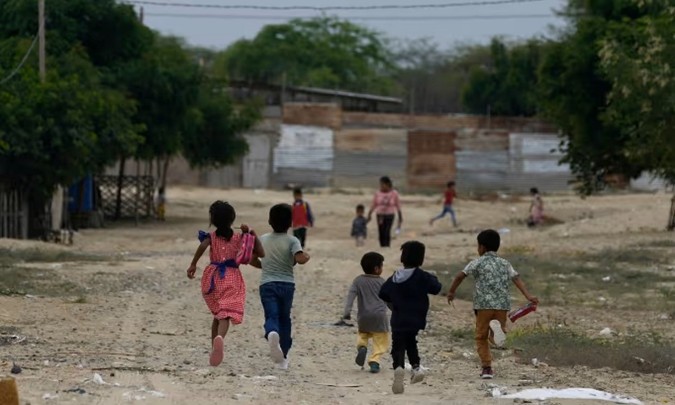
Amnesty has issued a new Urgent Action calling on the President not to enact amendments to a law passed by the Congress on 12 March that would allow undue control over the activities of civil society organisations in Peru which receive international development funding, thereby opening the door to unjustified restrictions, arbitrariness and censorship. Amnesty stated that the amendments, if enacted, would violate the rights to freedom of association and expression and undermine civic space in Peru.
Please note: this Urgent Action has finished; the President has enacted the law.
PARAGUAY
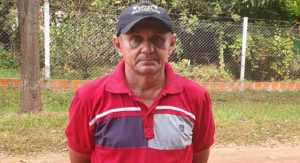
Amnesty has issued a new Urgent Action urging the Prosecutor’s Office to drop charges against a highly regarded environmental defender, Vidal Brítez, who has been detained and is being prosecuted in relation to an incident in which he did not take part. Amnesty stated that the detention of Brítez was a reprisal for his defence of a clean, healthy and sustainable environment. This is a letter we sent at our April meeting you can use.
ARGENTINA
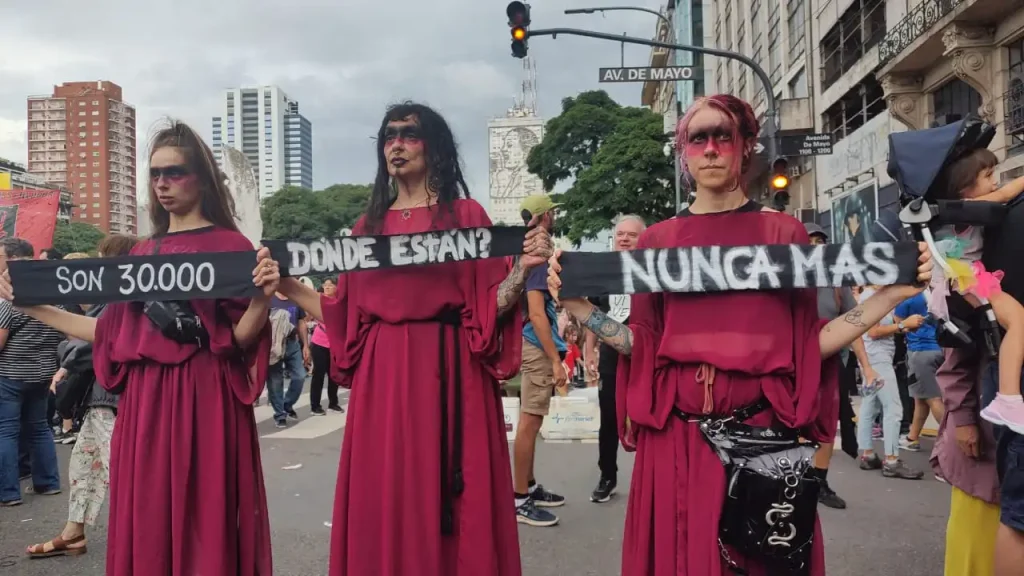
An Urgent Action has been published calling on Congress to guarantee an adequate standard of living for older people. The moratorium on social security contributions expired on 23 March. The government announced that it will not seek to extend this deadline given the fiscal adjustment plan that has severely impacted the pensions of older people. If Congress does not act, it will directly harm older people’s rights, especially those of women and informal workers. This is the third update – the only significant difference to the second version, sent to local groups last month, is it is now directed at individual members by email.
Retirees gather weekly in front of Congress to demand an increase in pensions and the restoration of certain free medications. On 12th March the retirees protest, supported by football fans, was broken up by police, leaving 672 injured and 114 arrests. Human Rights Watch have called for an investigation into security forces’ use of force and review an “anti-protest” protocol that opens the door to abuse. The Inter-American Commission of Human Rights called on the government to guarantee freedom of expression and association and to put human rights at the centre of its security protocols governing the use of force.
Human rights organizations gathered on 24th March in Buenos Aires to deliver speeches marking the 49th anniversary of the Military coup. They once again addressed the disappearances and tortures during the dictatorship, criticising President Milei and Vice-President Villarruel for their “denialist” approach to the issue. Early on the day the government published a 20 minute video contesting the number of victims and responsibilities of the dictatorship era. March 24 is National Memory, Truth, and Justice Holiday in Argentina to honour the estimated 30,000 victims of the dictatorship.
ECUADOR
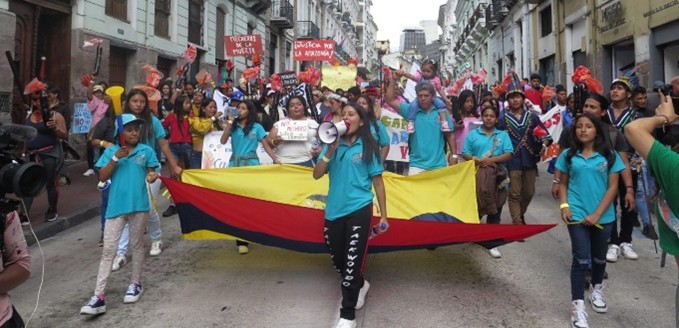 Amnesty has condemned a decision by Ecuador’s Constitutional Court to dismiss an extraordinary action for protection brought by the “Guerreras por la Amazonia” (Warriors for the Amazon). This group of activists, supported by others, won a court ruling in 2021 that ordered the elimination of gas flares in the Ecuadorian Amazon and reparation measures for violation of their rights to health and a healthy environment.
Amnesty has condemned a decision by Ecuador’s Constitutional Court to dismiss an extraordinary action for protection brought by the “Guerreras por la Amazonia” (Warriors for the Amazon). This group of activists, supported by others, won a court ruling in 2021 that ordered the elimination of gas flares in the Ecuadorian Amazon and reparation measures for violation of their rights to health and a healthy environment.
Ahead of the second and final round of the presidential election on 13 April, Amnesty published an open letter addressed to the presidential candidates Luisa González and Daniel Noboa (available only in Spanish). The letter called on the candidates to put human rights at the centre of their public policies, particularly on issues that are pressing for the country: public safety, the prison situation, the risks faced by human rights defenders, and the protection of the environment in the face of climate change.
BRAZIL AND PARAGUAY
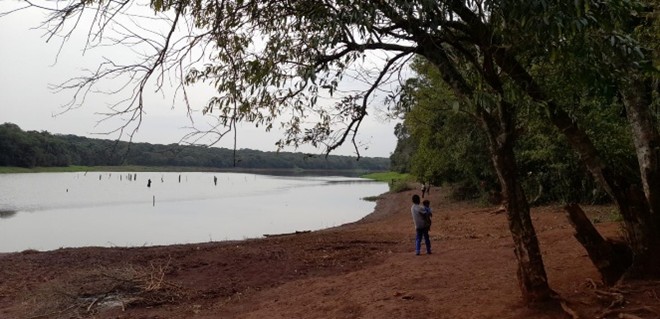 Brazil’s Supreme Federal Court has endorsed a settlement agreement in a lawsuit seeking redress for human rights violations suffered by indigenous communities in Brazil during construction of the Itaipú Dam. The agreement includes the publication of an apology acknowledging the company’s responsibility for the violations and damages suffered and the financing of the purchase of 3,000 hectares of land for the communities.
Brazil’s Supreme Federal Court has endorsed a settlement agreement in a lawsuit seeking redress for human rights violations suffered by indigenous communities in Brazil during construction of the Itaipú Dam. The agreement includes the publication of an apology acknowledging the company’s responsibility for the violations and damages suffered and the financing of the purchase of 3,000 hectares of land for the communities.
The communities have accepted this restitution as an immediate remedy, but declared that it does not in any way cover the true extent of the damage caused to the Avá Guaraní Paranaense territory. Amnesty stated that the outcome did not discharge the responsibility of the company and the governments of Brazil and Paraguay to provide full reparation to a people who have struggled for more than 40 years to recover their land. There has been no similar progress on the Paraguayan side of the border.
All the best,
South America Team – David Rogers (Argentina and Chile), James Baird (Venezuela) and Graham Minter (rest of South America). And please don’t forget that you can follow us on our Facebook page and Twitter.